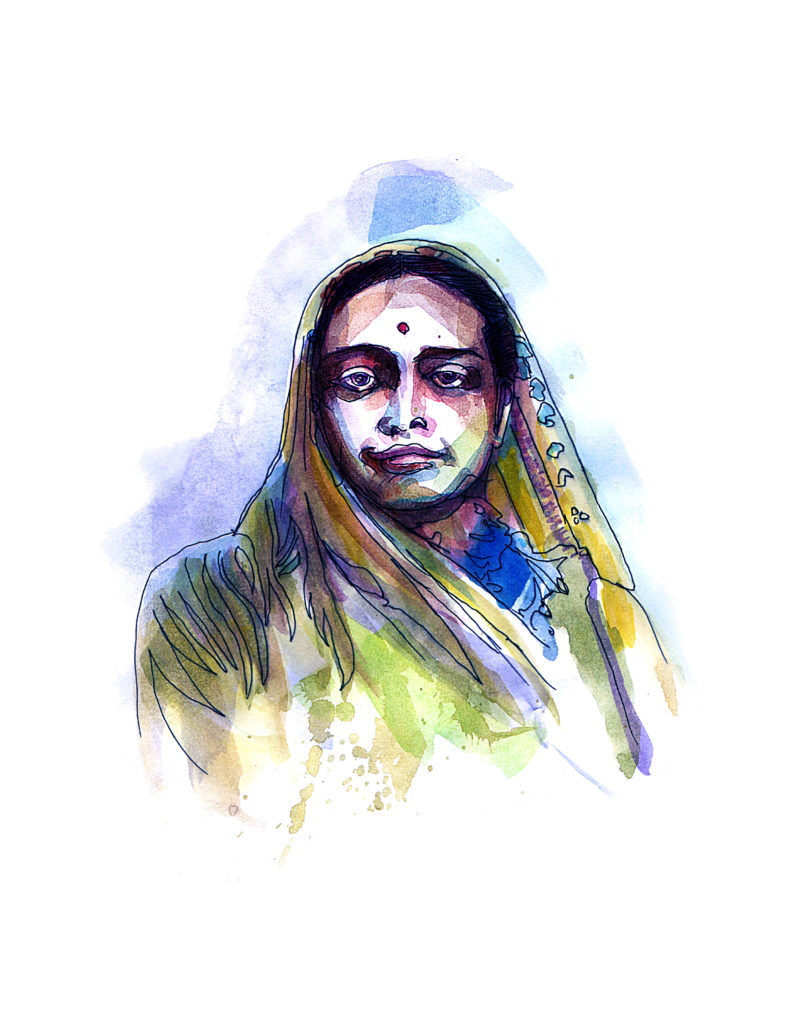“Love and exclusive possession can never go together.”

Activities for Month Five
(PRINT VERSION AVAILABLE HERE)
The following activities are options for you to implement as works best for your family throughout the entire month. None are very demanding, but each one requires of us our full presence of mind and heart. You are invited to be creative with the activities: find your own way to make it work for the children with whom you participating. Invite each other to add to the activities in ways that add to their meaning and beauty.
Here’s a list of the activities for the month.
Find descriptions below.
Journal
Family Meeting
Gandhi Searches for Truth, Reading and Discussion (for whole family)
Search for a Nonviolent Future, Reading and Discussion (for older teens and adults)
Mealtime Activity
Wisdom Tradition Passage
Nature Activity
Journal
Gandhi once said, “Love and exclusive possession can never go together.” Reflect on the relationship between violence and possessiveness and some ways that nonviolence may interrupt that unhappy relationship and transform it into something of greater beauty.
Family Meeting
This could take place around your nonviolence altar. Or in a space that you create intentionally to hold this meeting. Begin the meeting with something beautiful. Maybe a short song or a poem or an inspiring quote. Allow time for quiet reflection. Then, invite each other into the discussion.
Suggested topic for this month:
Create a new year’s resolution for nonviolence. How will each person commit themselves to growing in nonviolence more fully for the year?
Reading and Discussion with Children:
Gandhi Searches for Truth can help grown-ups and children have important conversations about ideas related to nonviolence. It’s most effective when we take our time with the content. Each chapter is divided into a quote, a story, and a nonviolence principle. The quote is intended largely for the older child/adult reader, but feel free to read and then explain, in your own words, to the children with whom you are working.
You may want to make a copy of the chapter’s illustration (or have the child/children draw it themselves) as well as take the Gandhi quote, and write it out on a piece of paper, decorate it, make it beautiful, and add these to your nonviolence altar for the month. When the month is over, you can choose to leave them on the altar, or create a book where you post your journey together, something to look back upon.
We’re on Chapter FIVE now. As previously explained, read it on your own first. Take time to consider how you would put the quote and the content of the chapter into your own words. Depending on the age of the child, you may be called on to simply show the picture, read it through, and then explain in your own words. That’s OK. If the child is able to engage with the material (and I believe, if you are patient and creative, that this is possible as early as three years), ask them to put what they heard into their own words too. Ask the child to “read” it to you–to teach YOU about Mahatma Gandhi when he was a little boy.
Before starting into Chapter Five, review with the children some of the main ideas from the first four chapters.
Chapter Five’s focus is FRIENDSHIP.
Questions/Thoughts that might accompany this chapter and help us to dig deeper into the concepts of nonviolence are: What does friendship really mean? What are some of the deeper purposes of friendship? How can we stay friends with someone while also non-cooperating with them when necessary? In other words, how can we dissociate ourselves from our friends’ actions when required without losing love for our friends?
Reading and Discussion for Adults
Read Chapter Five of Search for a Nonviolent Future. Over the whole month. Take your time. In your journal, take notes on key ideas that strike you, or key passages that move/inspire you, as well as any questions you may have. Talk about these ideas with the other adult working with you on this program, and/or write them into the Metta Center.
Mealtimes
Invite a special friend to a special meal this month to celebrate friendship. Have your children help you plan it.
Wisdom Tradition Passage
Gandhi wanted children to have a “reverential study of the world’s religions.” Choose a passage from the book God Makes the Rivers to Flow, and read it together. Wishing those who practice that faith the courage to use nonviolence; and the courage for everyone regardless of faith or religion to live together in harmony with respect, dignity, and equal rights. Share with us with one you chose this month!
Activity in Nature:
Plants and animals do not share our same verbal language, though they do share our heart language. Find a way to develop care and love–friendship–for a non-human species this month. Bond with a new animal or a new plant and share your experience with each other.








